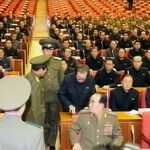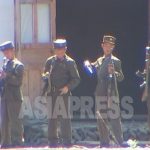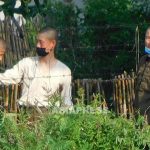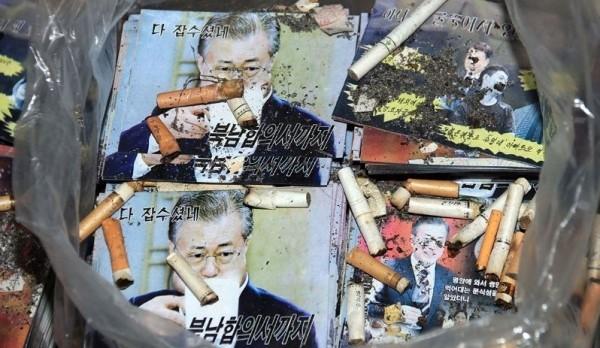
"South Korea is now an enemy, neither a kin nor an object of reunification." Late last year, Kim Jong Un shocked South Korea and the international community with this declaration. But what do North Koreans, the people who matter most, think of it? We asked our reporting partners to share their thoughts and the mood in the country. (ISHIMARU Jiro / KANG Ji-won)
◆ The aim of the “anti-unification policy” policy is to eliminate South Korean culture
In the first installment of this series, ASIAPRESS reported on people’s bewilderment toward the "anti-unification policy” and the propaganda and indoctrination by the authorities based on reports from several reporting partners in Yanggang Province. In this installment, we will first introduce the views of our reporting partners in North Hamgyong Province, and their opinions on what the government intends with this policy shift. All were interviewed in late January.
A reporting partner in Musan County described the atmosphere of bewilderment that has settled over their community:
"They suddenly start calling South Korea a hostile country. People around me say various things, but I'm not sure what's what. When the government was talking about economic cooperation (when economic cooperation between North and South Korea was actively discussed in 2018-19), they claimed that (we) could live well, but now they are saying that (South Korea) is a hostile power and not a partner for reunification, so I'm confused."
A reporting partner in Hoeryong shared his thoughts on the purpose of the policy shift to the “anti-unification policy” as follows:
"This time, Kim Jong-un said, 'There will be no peaceful reunification, we will occupy (South Korea).’ In other words, we are a military power, so we are confident that we can defeat (the U.S. and South Korea). The reason why they oppose South Korea so strongly is because of crackdowns on South Korean culture. They are out to eliminate things they call ' 'non-socialism” and “anti-socialism,' and they keep conducting harsh crackdowns on the way we speak, the way we dress, (illegal) videos, defections, and using Chinese cell phones. It’s all related to South Korea, so I think they aim to eliminate everything related to South Korea.”
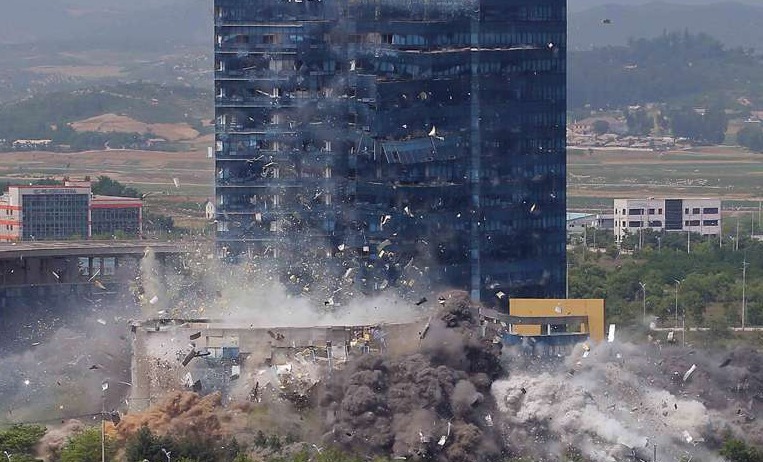
◆ There are people who want war because life is so hard
At the heart of the Kim Jong Un regime's argument for its “anti-unification policy” is the idea that it is on the brink of war with its arch-enemies, South Korea and the United States. Here's how ordinary North Koreans see it, as a Yanggang Province reporting partner told ASIAPRESS in late January.
-- Kim Jong Un has vowed to pacify South Korea and even use nuclear weapons.
The big concern right now is, are we really going to go to war, and can we fight the South Koreans and win? We have nukes, and if there's a nuclear war, we're all going to die, and that's something we talk about a lot when we get together. But some people want war to happen because it's so hard to live.
-- There's people who want war?
I mean, if there's a war, we might die, but it's better than the way things are now, and whether it's war or negotiations, there's a feeling that something has to change.
-- What is your opinion on nuclear war with South Korea and the United States?
Nukes are the last weapon I would use because if there is a nuclear war, the enemy will die and I will die. However, some people say nukes are actually weaker than an automatic rifle because you only have it to protect yourself. They can't say it out loud, but that's the sentiment among people who have been listening to the radio for a long time and know a little bit about the situation outside. The US, Russia, and China say they have a lot of nuclear weapons, but they can't actually use them.
Others say, 'We're just like robbers: we’re trying to get food aid by threatening the US and Japan and South Korea with nuclear weapons.' People who don't know anything (about the outside world) are saying, 'Let's become a bomb (for the country), let's be loyal,' but those who know are saying, 'How ignorant and stupid we are.'
◆ Authorities strengthen informant system…People don’t speak their mind
-- People can't speak freely in North Korea.
Now, with the crackdown on "rumors" and non-socialist phenomena, and the strengthening of the "reporting system," people are increasingly afraid to speak out against the government, even if they think policy is wrong.
The system of mutual surveillance of people's speech and behavior and reporting to the authorities is stronger than before. Information that is unfavorable to the regime is considered "rumor" or fake information, and the source of such information is intensely investigated. Food and cash are offered as rewards to people who inform on others.
-- So the informant system has been strengthened?
The reward system is so good that you can't talk freely. Companies and organizations have created petition boxes for cadres, and there is a system of mandatory criticism of individuals and organizations once a week, separate from criticism sessions.
※ Struggle sessions refer to the weekly behavioral reflection meetings held every Saturday at all workplaces, schools, and social organizations, such as women's and youth associations.
This has been in effect since March of last year, and based on the content of the petitions, there are investigations and inspections (for businesses and organizations) conducted by prosecutors or by the party committees in Hyesan and Yanggang Province. Even among cadres, it has become impossible to talk about the above (about the regime's elites and Kim Jong-un) even among people who know each other well. They don't trust each other.
※ Since around 2019, these petition boxes, which offer an anonymous way to criticize individuals and cadres, have become commonplace in companies and organizations. The system is used to accuse cadres of corruption, problematic behavior, and make other complaints. (End)
※ ASIAPRESS communicates with reporting partners through Chinese cell phones smuggled into North Korea.
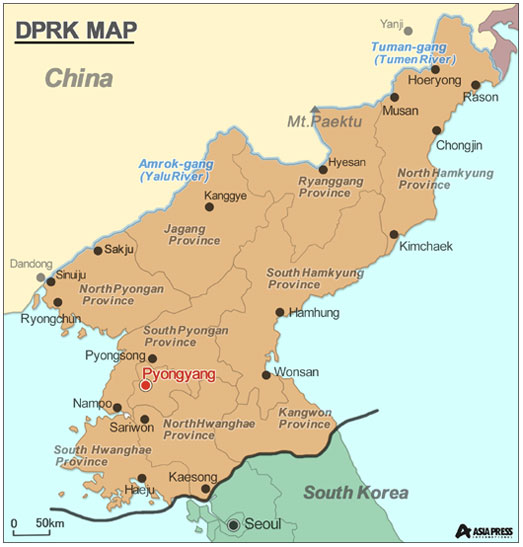
- <Inside N. Korea> Lack of foreign exchange leads to drop in RMB…Provincial trading companies can’t trade with China due to lack of foreign cash
- <Inside N. Korea> Authorities threaten defectors with firing squads and imprisonment at neighborhood watch unit meetings…Massive search launched to find suspected defector
- <Inside N. Korea> “Prepare for war…” Government intensifies civil defense training amid efforts to stoke crisis…tells those not attending drills that their rations, wages will be cut
- <Inside N. Korea> Equality and corruption stemming from government push for elite education… “classes for gifted students” prioritized over ensuring equal educational opportunities for all
- What occurred behind the veil in N.Korea 2020-2023…A disaster unfolding due to shifts in the Kim Jong-un regime’s policies…Part 4: A serious humanitarian crisis and the appearance of “Kim Ju-ae” ISHIMARU Jiro
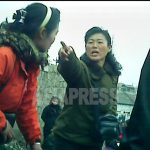
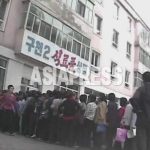
![[Video Report] Kotchebi Girls, Sexually Abused and Exploited](https://www.asiapress.org/rimjin-gang/wp-content/uploads/2016/11/1231-150x150.jpg)
